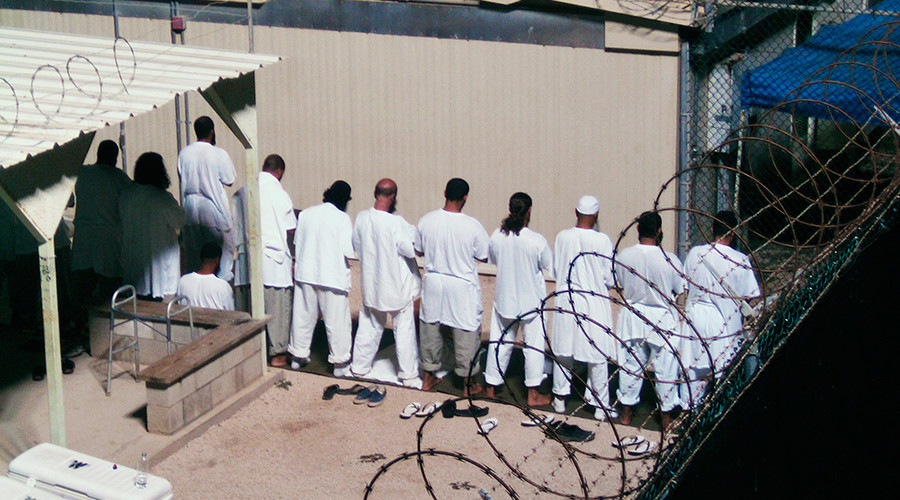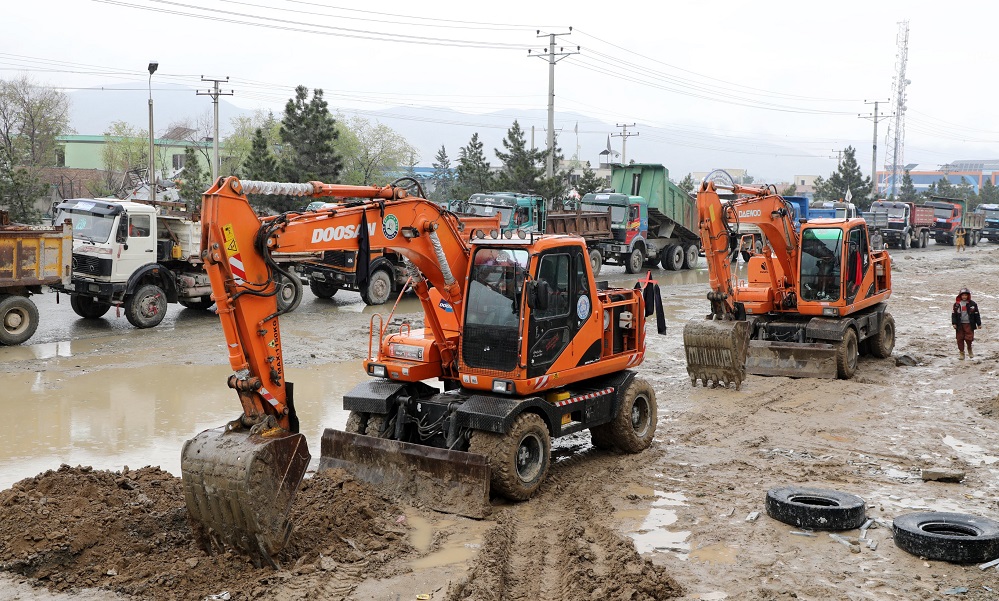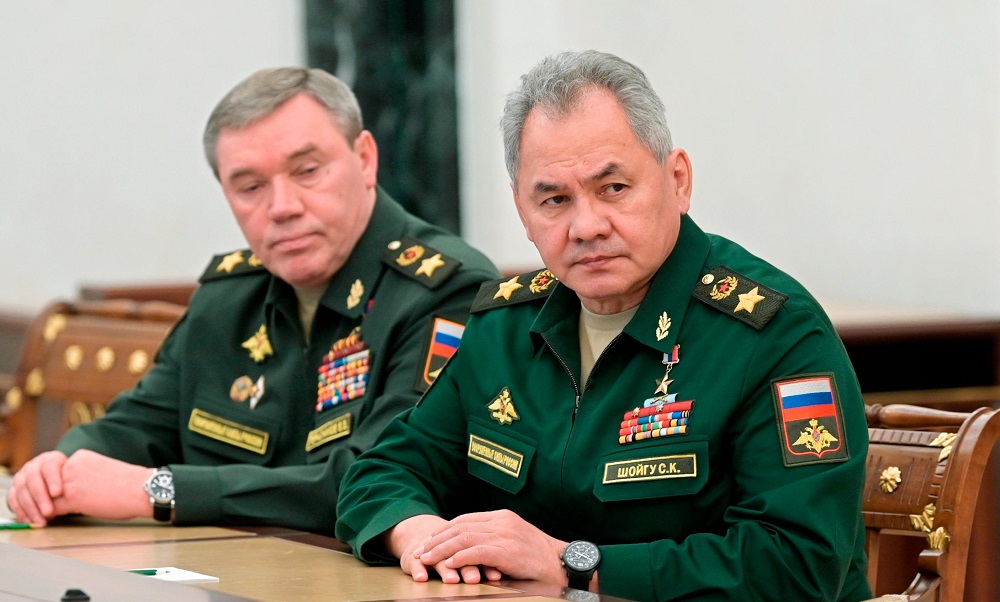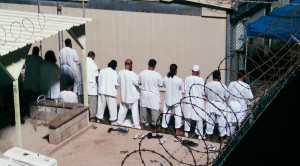Latest News
U.S. sends 9 Yemeni prisoners from Guantanamo Bay to Saudi Arabia

The United States on Saturday transferred nine Yemeni men to Saudi Arabia from the U.S. military prison at Guantanamo, including an inmate who had been on a hunger strike since 2007, under a long-sought diplomatic deal between Washington and Riyadh, U.S. officials said.
The transfer, which took place just days before President Barack Obama’s visit to Saudi Arabia for a summit of Gulf Arab allies, marked the latest step in his final push to close the controversial detention center at the U.S. naval base in Cuba before he leaves office in January 2017.
The Saudis agreed, after lengthy negotiations that at one point involved Obama and Saudi King Salman, to take the nine Yemenis for resettlement and put them through a government-run rehabilitation program that seeks to reintegrate militants into society, the officials said.
The group announced by the Pentagon was the largest shipped out of the Guantanamo Bay prison since Obama rolled out his plan in February aimed at shutting the facility. But he faces stiff opposition from many Republican lawmakers as well as some fellow Democrats.
There are now 80 prisoners at Guantanamo, most held without charge or trial for more than a decade, drawing international condemnation.
The most prominent of the transfers was Tariq Ba Odah, a 37-year-old Yemeni whom the military had been force-feeding daily since he went on a hunger strike in 2007. His legal team said he was down to 74 pounds, losing about half of his body weight.
Ba Odah’s lawyer, Omar Farah, said the U.S. government had “played Russian roulette” with his client’s life and that his transfer “ends one of the most appalling chapters in Guantanamo’s sordid history.”
His case was a source of legal wrangling between the U.S. Department of Justice and his lawyers, who had unsuccessfully sought his release on humanitarian and medical grounds, and also created divisions within the Obama administration.
TRANSFERS PRECEDE OBAMA’S VISIT
The transfers took place as Obama prepared to visit Saudi Arabia on Wednesday and Thursday for a summit with the Gulf Cooperation Council at a time when U.S.-Saudi relations have been strained by the nuclear deal with Iran, their Shi’ite regional rival, and what Riyadh sees as a weak U.S. response to Syria’s civil war.
The Saudis have also threatened to sell of hundreds of billions of dollars’ worth of American assets should the U.S. Congress pass a bill that could hold the kingdom responsible for a role in the Sept. 11, 2001 attacks, the New York Times reported.
A U.S. official said the transfer – the result of years of negotiations, including an Oval Office appeal by Obama to the visiting Saudi monarch in September and visits to the kingdom by U.S. Secretary of State John Kerry – was not orchestrated for Obama’s trip and the timing was a coincidence.
Republicans have expressed opposition to such transfers, voicing concern that more released Guantanamo prisoners will return to militant activities.
But the transfer was considered a breakthrough since Riyadh had long resisted taking any non-Saudi nationals from the prison.
All nine men have family ties in Saudi Arabia, which borders Yemen. The Obama administration has ruled out sending Yemenis to their homeland because it is engulfed in civil war and has an active al Qaeda branch.
“The United States is grateful to the government of the kingdom of Saudi Arabia for its humanitarian gesture,” the Pentagon said in a statement.
Guantanamo prisoners were rounded up overseas when the United States became embroiled in wars in Iraq and Afghanistan following the Sept. 11, 2001, attacks on New York and Washington. The facility, opened by Obama’s predecessor George W. Bush, came to symbolize aggressive detention practices that opened the United States to accusations of torture.
Obama’s plan for shuttering the facility calls for bringing the several dozen remaining prisoners to maximum-security prisons in the United States. U.S. law bars such transfers to the mainland but Obama has not ruled out using executive action to do so.
Ba Odah, who was captured by the Pakistani army along the Afghan border and was accused of receiving weapons training in order to fight with the Taliban, had been force-fed by nasal tube since he stopped taking solid food in protest at his detention. He was cleared for transfer in 2009.
Pentagon officials had said he was receiving proper care. But his case was seen, until a recent uptick in transfers, as evidence of the Pentagon resisting Obama’s efforts to close the detention center.
The other prisoners involved in the transfer were identified as: Umar Abdullah Al-Hikimi, Abdul Rahman Mohammed Saleh Nasir, Ali Yahya Mahdi Al-Raimi, Muhammed Abdullah Muhammed Al-Hamiri, Ahmed Yaslam Said Kuman, Abd al Rahman Al-Qyati, Mansour Muhammed Ali Al-Qatta, and Mashur Abdullah Muqbil Ahmed Al-Sabri.
They were among a group of lower-level inmates, now numbering 26 and mostly Yemenis, who have been cleared for transfer by a U.S. government inter-agency task force. U.S. officials have said they expect to move out all members of that group by this summer.
Written by: Reuters

Latest News
Three road construction projects launched in Kabul

Three road construction projects worth about one billion Afghanis started in capital Kabul on Saturday.
The projects were inaugurated by Deputy Prime Minister for Economic Affairs Mullah Abdul Ghani Baradar.
The projects are: the second phase of Kotal Khairkhane road, the first part of the Shahid square to Qasaba, and the Airport road to Gumruk.
In the inauguration ceremony, Mullah Baradar said that Kabul municipality is working hard to beautify and regulate the city, and people should cooperate with the government in protecting public benefit projects.
He directed the officials of Kabul municipality to complete the mentioned projects on time and with good quality.
The second phase of Kotel Khairkhaneh road is 2.5 kilometers long and 60 meters wide. Thie road will cost 364 million Afghanis and will be completed in 20 months.
The Shahid square-Qasaba road is 1.8 kilometers long and 45 meters wide, which will be built at a cost of 175 million Afghanis in one year.
The Airport-Gumruk road is 2.7 km long and 60 meters wide, which will be completed at a cost of 407 million Afghanis in 20 months.
The projects are funded by Kabul Municipality.
Latest News
Russian defense minister says main threat for SCO countries emanates from Afghanistan

Russian Defense Minister Sergey Shoygu said on Friday that the main threat for the Shanghai Cooperation Organization (SCO) members emanates from Afghanistan where international terrorist groups find shelter due to unstable and indefinite political situation.
Speaking at a meeting of the SCO defense ministers in Kazakhstan’s capital Astana, Shoygu said Washington has stepped up efforts to restore its positions in Central and South Asia that were lost after the withdrawal of coalition troops from Afghanistan, Anadolu Agency reported.
The military chief called “unacceptable” the deployment of the American military infrastructure in the region, arguing that intentions should be regarded as “a direct threat to stability in the SCO space.”
According to him, the US is trying to impose a new security system in the Asia-Pacific region for dominance.
This comes as the Islamic Emirate has repeatedly emphasized that it does not allow anyone to pose threats to any other country from Afghanistan soil.
Recently, Mohammad Yaqub Mujahid, Acting Minister of National Defense Mohammad Yaqub Mujahid said that no destructive groups including Daesh have physical presence in Afghanistan,
Latest News
IEA calls Mujahideen Victory Day ‘freedom day’

In a statement on the occasion of the 32nd anniversary of the victory of the Mujahideen against the then communist government, the Islamic Emirate said that it is a day of freedom of the Afghan nation.
The Islamic Emirate described the coup by People’s Democratic Party of Afghanistan on 27th April 1978 as a dark day in history, as a result of which the people of Afghanistan suffered severe human and financial losses.
The statement said that the Afghan nation suffered huge casualties in their 14-year struggle against the thoughts and actions of the communists, as 1.5 million people died and millions more faced various hardships.
“After 20 years of Jihad, our country was freed from another occupation and the Islamic system was established, so the Islamic Emirate will make its utmost efforts so that the fruits of decades of sacrifice and struggle of this nation are not wasted,” the statement said.
“It was the wish of the martyrs to fully implement the Islamic system in the country, and therefore, the Islamic Emirate is trying to facilitate development and prosperity under the shadow of the Islamic system in order to realize the goals of the Afghan people’s jihads,” it added.
-

 Latest News4 days ago
Latest News4 days agoRashid Khan named AWCC’s brand ambassador
-

 World5 days ago
World5 days agoMalaysian navy helicopters collide in mid-air, 10 killed
-

 Sport4 days ago
Sport4 days agoJaiswal ton powers Rajasthan to big IPL win
-

 World4 days ago
World4 days agoNorth Korea officials visit Iran in a rare public trip
-

 Latest News5 days ago
Latest News5 days agoAt least 1,500 families affected by recent floods: IRW
-

 Sport5 days ago
Sport5 days agoMawj Sahil player scores stunning halfway line goal in 1-0 win over Jawanan Wahedi
-

 Sport3 days ago
Sport3 days ago‘Serious talent’ Fraser-McGurk bonds with Warner to light up IPL
-

 Latest News4 days ago
Latest News4 days agoUS report cites ‘significant deterioration’ in Afghan women’s rights last year















